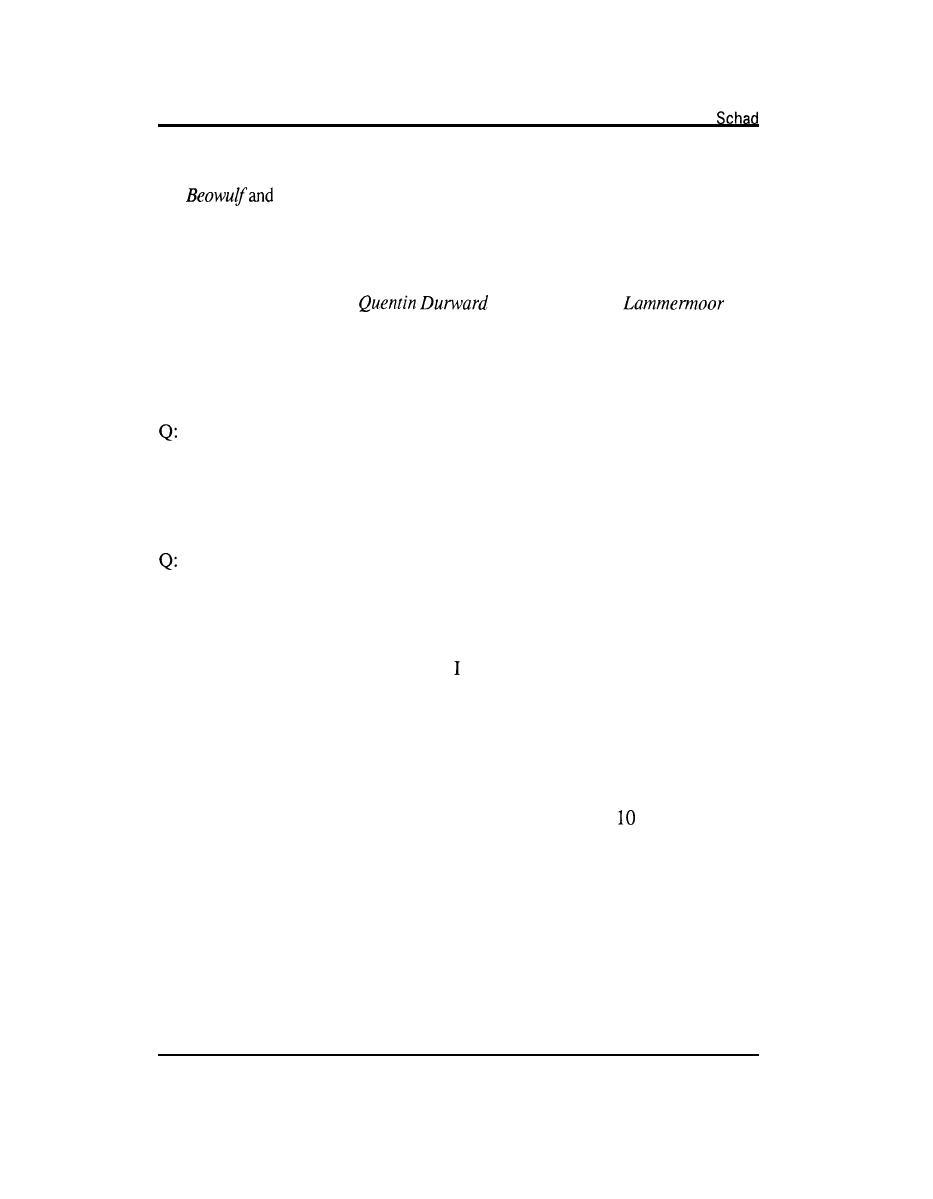
Theodore M.
Captain Kilboume was steeped in the love of English literature. He could read
Chaucer and he could just make it come alive in the same way that
good actors can make Shakespeare live, whereas when you just read it, you
don't always get the flavor of it. Unfortunately my high school courses in
English-in English literature particularly-were not too good because they
were so unimaginative. By the time I got to high school English literature, I
had read Ivanhoe and
and the Bride of
and
almost all of the Waverly novels, which I just loved, and it was amazing to me
how the teacher could make them seem so dull and uninteresting.
Well, I'm not really a classical scholar. I just enjoy literature.
Let me ask you this. First of all, you'd taken French. Now, did you still have
some working knowledge of German at that time?
A: No, very little. And I never took German, but I had tried to learn to speak it
with my sister when she took it at Western Maryland College.
What about-I'm still a little bit mystified as to why your house was so
crammed full of books. I mean, your father, photography work and a shirt
ironer, what led him and your mother to have that kind of an interest?
A: I think that what started it was that they inherited all the books from my
grandfather when he died in 1911. think a lot of the books came from my
mother also. She had lots of books that were hers and were of a later vintage.
Also they bought a lot of books up to the farm years and then their interests,
I guess, became different. But no, there were all kinds of books, and it was not
at all unusual for three or four of us to be sitting in the living room and reading
on a Sunday afternoon.
And the other source of books was my brother-remember,
years older than
I-but only one year at college. My father didn't have money to send him
because of the losses on the farm. My brother got a scholarship for tuition, but
he had to work for his room and board. He went to Randolph-Macon
College-not the women's college, but the one down in Ashland-he got his
scholarship through a program they called the CMTC. He went in the summer
to the Citizen's Military Training Corps, which was the 1920s version of
military preparedness. He was good at it, and he was awarded a scholarship.
But he had to work for his room and board, and he didn't make it.
21



 Previous Page
Previous Page
